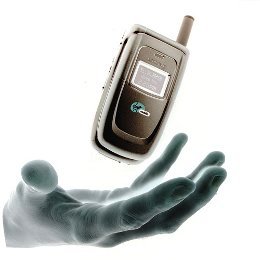Updates On Prepaid Load Expiry
 Here are the updates on a series of blogs I made regarding the Senate inquiry on vanishing prepaid cellphone loads. We already know that the public hearings resulted to the issuance of a memorandum circular by the National Telecommunications Commission (NTC) that orders the cellular phone companies to triple the expiration periods of prepaid cellphone loads.
Here are the updates on a series of blogs I made regarding the Senate inquiry on vanishing prepaid cellphone loads. We already know that the public hearings resulted to the issuance of a memorandum circular by the National Telecommunications Commission (NTC) that orders the cellular phone companies to triple the expiration periods of prepaid cellphone loads.
The good news is that the cellular phone companies (telcos) had already agreed to the NTC decision to extend the shelf life of cell phone loads. The telcos did not resort to filing any case in court to avert the implementation of the new circular. The new expiry periods will be effective July 19, 2009 and briefly, the shelf life of credits of P10 to P50 will be extended from two to five days to 15 days; more than P50 to P100, 30 days; more than P100 to P250, 60 days; and more than P250 to P300, 75 days.
There is a little sad news about the implementation of the rules on expiry. NTC Memorandum Circular No. 03-07-2009 provides that when a prepaid cellphone subscribers tops an existing load, the resulting cumulative credits should expire based on the amount of the newly bought credit. The telcos requested NTC to waive this provision of the circular only for the current remaining credits of their prepaid subscribers. They reason out that they cannot do the order using the current software but all load toppings after July 19 will follow the circular.
Regarding the “text spam” or unsolicited text messages from telcos’ content providers, NTC Memorandum Circular No. 04-07-2009 will be in effect starting July 23, 2009. Based on this circular, subscribers will no longer be bombarded with push messages unless they subscribe to their promos first. This is the other good thing that resulted from the Senate inquiry on vanishing prepaid loads.
It was also in the news that at the resumption of the Senate hearing last July 14, 2009, Senate President Juan Ponce Enrile, who initiated the probe of the disappearing loads, said he would ask the Supreme Court to investigate the Quezon City judge who issued the temporary restraining order (TRO) eight years ago. It was because of the TRO issued by Judge Vivencio S. Baclig, presiding judge of Branch 77 of the Quezon City Regional Trial Court that NTC failed to implement a similar memorandum circular it issued in year 2000.
Again, your blogger is expressing his pleasure on the issuance and implementation of the new NTC circulars but is also taking note of the adverse effects on the revenue of some cafés that have substantial e-loading business. A reduction of income from such activity is expected to happen due to lesser frequency of loading by prepaid cellphone subscribers.




Latest Feedbacks